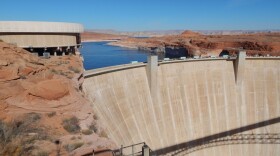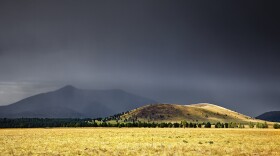A new study authored by scientists at Northern Arizona University shows ecosystems worldwide take longer to recover from droughts than they did a century ago. KNAU’s Melissa Sevigny reports.
In the early 1900s ecosystems required at most about a year to recover from a drought. Now, those extreme recovery times have stretched to five years. That’s one result of a study led by NAU’s Christopher Schwalm.
"The first thing we found out is what drives recovery time after drought is very much linked to global warming," Schwalm says. "That is, the most important thing that controls the length that a vegetated system requires to recover is temperature."
As the world grows warmer, Schwalm says ecosystems may not have time to bounce back from one drought before another one arrives. The study showed tropical and arctic ecosystems are most at risk. The research appeared last month in the journal Nature.








